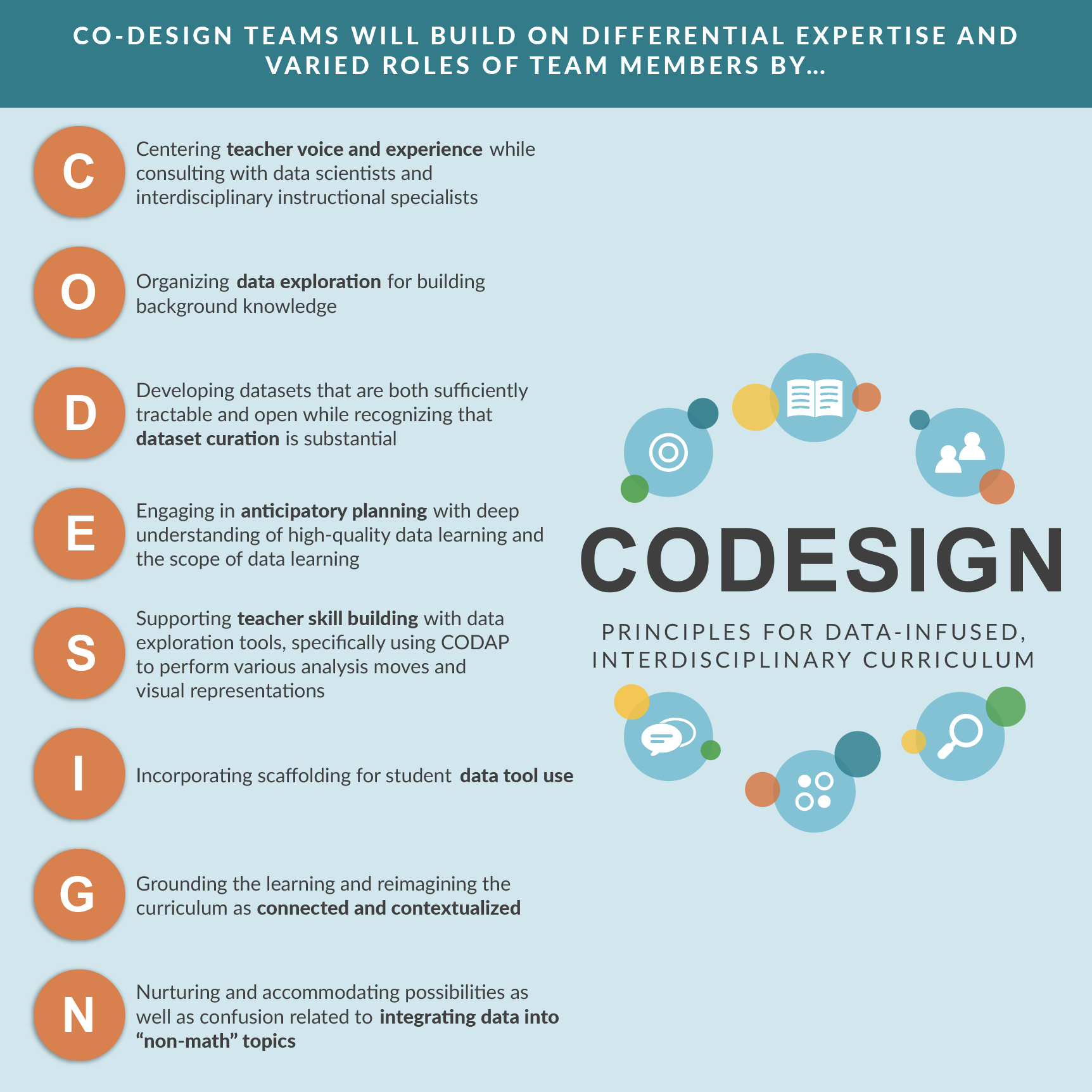Joe Polman is the Associate Dean for Research and a Professor at the University of Colorado Boulder. Kate Miller is a Research Associate. Cynthia McIntyre is the Director of Communications.
Over the course of two years, our National Science Foundation-funded Contextualizing Data Education via Project-Based Learning (DataPBL) project co-designed addenda to four middle school English Language Arts (ELA) modules from the EL Education curriculum. Our goal? Include authentic data experiences that cross boundaries between English language arts, science, and social studies, and help students develop positive identities related to data.
The DataPBL co-design teams included educational researchers from the University of Colorado Boulder; mathematics support staff from EL Education; professional development, curriculum development, and dataset experts from the Concord Consortium; one seventh grade science teacher; an eighth grade social studies teacher; and an eighth grade humanities teacher. Additionally, the teachers were supported at their schools by their administrators. One school also had a literacy instructional lead and an intervention specialist.
The teams met twice annually in person for two days and monthly through videoconferencing for professional learning and co-design work. We focused on identifying content alignment, locating and curating datasets for student use, designing unit and lesson plans, developing supporting materials for classroom implementation, and analyzing and understanding student learning and engagement.
This intense and extended co-design work produced classroom-tested addenda to two eighth grade modules (Food Choices and Lessons from Japanese American Internment) and critical parts of two seventh grade modules (Epidemics and Plastic Pollution). It also produced a set of co-design principles our team used to guide our collective work.
Co-design teams will build on differential expertise and varied roles of team members by…
C – Centering teacher voice and experience while consulting with data scientists and interdisciplinary instructional specialists
O – Organizing data exploration for building background knowledge
D – Developing datasets that are both sufficiently tractable and open while recognizing that dataset curation is substantial
E – Engaging in anticipatory planning with deep understanding of high-quality data learning and the scope of data learning
S – Supporting teacher skill building with data exploration tools, specifically using CODAP to perform various analysis moves and visual representations
I – Incorporating scaffolding for student data tool use
G – Grounding the learning and reimagining the curriculum as connected and contextualized
N – Nurturing and accommodating possibilities as well as confusion related to integrating data into “non-math” topics

This effort to articulate the principles behind successful co-design builds on work at the inquiryHub at the University of Colorado Boulder. “In the curriculum design process,” the inquiryHub team notes, “teachers leverage their expertise in both content and the contexts of their classrooms, and because district leaders, researchers, and others are partners in the process it becomes far more likely that teachers’ voices become part of the collective voice of the group.”
We were delighted to partner with amazing teachers and specialists as valued collaborators on the DataPBL project. By honoring the distributed expertise of all team members and aligning our shared goals—to integrate relevant datasets into the curriculum, add new entry points for students, foster deeper student understanding of how to use data as evidence, and encourage students to think critically about real-life topics—the project produced classroom-tested curriculum through successful co-design.